
Béla Tarr
Birth : 1955-07-21, Pécs, Hungary
History
Béla Tarr (born July 21, 1955) is an acclaimed Hungarian film director. Much of his work is marked by philosophical elements and a pessimistic view of humanity. His films utilize unconventional storytelling methods, such as long takes and/or non-professional actors to achieve realism.
Debuting with his film Family Nest in 1979, Tarr underwent a period of what he refers to as "social cinema", aimed at telling mundane stories about ordinary people, often in the style of cinema vérité. Over the next decade, the cinematography of Tarr's films gradually changed; Damnation (1988) was shot with languid camera movement aimed at establishing ambience. It marked Tarr's earliest experimentation with philosophical themes, focused mostly on bleak and desolate representations of reality. Sátántangó (1994) and Werckmeister Harmonies (2000) continued this approach; both are considered by some critics to be among the greatest films ever made. Tarr would later compete in the 2007 Cannes Film Festival with his film The Man From London.
Frequent collaborators of Tarr include his wife Ágnes Hranitzky, novelist László Krasznahorkai, film composer Mihály Víg, cinematographer Fred Kelemen, and actress Erika Bók. After the release of his film The Turin Horse (2011), Tarr announced his definitive retirement from film direction. He has been teaching at the Sarajevo Film School since.
Description above from the Wikipedia article Béla Tarr, licensed under CC-BY-SA, full list of contributors on Wikipedia.

Self (archive footage)
The panorama of human affairs encounters the “man with a movie camera”. His playground has no boundaries, his curiosity no limits. Characters, situations and places pitch camp in the life of a humanity that is at once the viewer and the thing viewed. But what are the last days of this humanity? Have they already passed? Are they now or still to come?

Producer
A world in lock-down. As a global pandemic unfolds, 13 international filmmakers pen cinematic letters from their places of isolation, whether home or far from home. A work of accidental science-fiction from the Bistrik7 collective, graduates of Béla Tarr's Sarajevo film.factory.

Executive Producer
An Icelandic couple live with their herd of sheep on a beautiful but remote farm. When they discover a mysterious newborn on their land, they decide to keep it and raise it as their own. This unexpected development and the prospects of a new family brings them much joy before ultimately destroying them.

Producer
On her regular day at work, Paola starts to feel that she is missing out something exciting.

Director
Presents moving images of society’s outsiders, the impoverished and oppressed, whose lives are contrasted with the opulent surroundings of contemporary Vienna.

Executive Producer
A filthy Con-Man stumbles into an old Balkan village where he tries to win the people by calling himself a doctor.

Writer
A young boy plays an accordion in a shopping mall. Béla Tarr picks up the camera one more time to shoot his very last scene. It is his anger about how refugees are treated in Europe, and especially in Hungary, that drove him to make a statement.

Director
A young boy plays an accordion in a shopping mall. Béla Tarr picks up the camera one more time to shoot his very last scene. It is his anger about how refugees are treated in Europe, and especially in Hungary, that drove him to make a statement.

Producer
Two starving kids find a dead body in the ruins.

Consulting Producer
Miners in a Bosnian coal mine. The camera silently watches over the miners working tirelessly amidst endless noise and the flickering light of lanterns.

An abandoned tumbledown theater in the outback of Paraíba state is the initial setting of a film about cinema, which explores the testimonials of the novelist and playwright Ariano Suassuna and other filmmakers such as Ruy Guerra, Julio Bressane, Ken Loach, Andrzej Wajda, Karim Ainouz, José Padilha, Hector Babenco, Vilmos Zsigmond, Béla Tarr, Gus Van Sant and Jia Zhangke. They all respond to two basic questions: why do they make movies and why do they serve the seventh art. The filmmakers share their thoughts about time, narrative, rhythm, light, movement, the meaning of tragedy, the audience‘s desires and the boundaries with other forms of art.

Executive Producer
The experiment presents a cinematic poem to filmmaking and film itself. Directed by eleven filmmakers, all under the vision of Bela Tarr's 'film.factory', delving into what keeps us making films.

Himself
A documentary about the making of The Turin Horse, the last film directed by Hungarian master Béla Tarr.

Producer
A cowherd, sheep, and the wind, all have an equal presence in the village. Death and life are one and indivisible.

Producer
A film where anything can happen - the hero and the heroine changes their faces, age, look, names, and so on. The only same thing: The love between man and woman... in an archetypical love story cut from 500 classics from all around the world.

Producer
Anthology film made as an act of protest against Hungarian government of Viktor Orban.

Béla Tarr
A film within a film within a film within a fish.

Screenplay
A monumental windstorm and an abused horse's refusal to work or eat signal the beginning of the end for a poor farmer and his daughter.

Director
A monumental windstorm and an abused horse's refusal to work or eat signal the beginning of the end for a poor farmer and his daughter.

Himself
Hungarian filmmaker Béla Tarr and film critic Howard Feinstein discuss his innovative filmography, punctuated by clips from his films.

Producer
In the closed world of a Catholic monastery shortly after World War II the post-war insecurity exacerbates the walls. A new world order has arrived. The monastic life begins to break down as some of the monks start to morally decline.
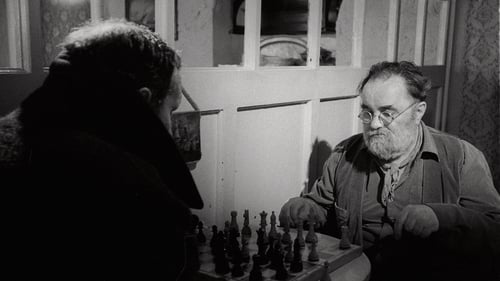
Associate Producer
A switchman at a seaside railway witnesses a murder but does not report it after he finds a suitcase full of money at the scene of the crime.

Screenplay
A switchman at a seaside railway witnesses a murder but does not report it after he finds a suitcase full of money at the scene of the crime.

Director
A switchman at a seaside railway witnesses a murder but does not report it after he finds a suitcase full of money at the scene of the crime.

Producer
Johanna, a young drug addict, falls into a deep coma after an accident. Doctors miraculously manage to save her from death's doorstep. Touched by grace, Johanna cures patients by offering her body. The head doctor is frustrated by her continued rejection of him and allies himself with the outraged hospital authorities. They wage war against her but the grateful patients join forces to protect her. This is a filmic and musical interpretation of the Passion of Joan of Arc.
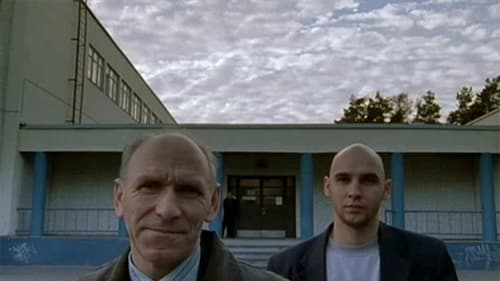
Director
Twenty-five films from twenty-five European countries by twenty-five European directors.
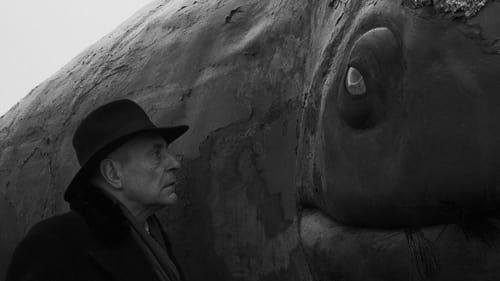
Associate Producer
A mysterious circus excites a small Hungarian town into a rebellion when a promised act doesn't perform.

Co-Writer
A mysterious circus excites a small Hungarian town into a rebellion when a promised act doesn't perform.

Director
A mysterious circus excites a small Hungarian town into a rebellion when a promised act doesn't perform.

Writer
György Fehèr’s aim was to “make a film which is similar to the last salvaged print of a long lost film”. The passions he investigates are centred on primeval fears and cravings and a sense of inescapable doom. Shot in powerful black and white with excellent central performances.

Director
Revisits of locations on the Great Hungarian Plain - the puszta - that were used in Tarr's Sátántangó and Werckmeister harmóniák. Recitations of short lyric poems by Hungary's national poet Sándor Petofi.
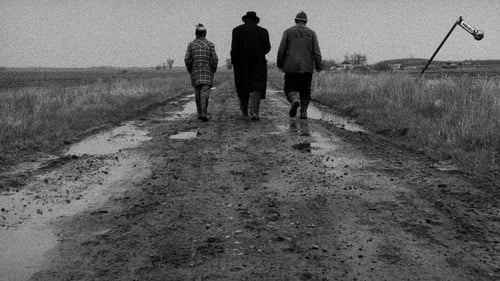
Director
Inhabitants of a small village in Hungary deal with the effects of the fall of Communism. The town's source of revenue, a factory, has closed, and the locals, who include a doctor and three couples, await a cash payment offered in the wake of the shuttering. Irimias, a villager thought to be dead, returns and, unbeknownst to the locals, is a police informant. In a scheme, he persuades the villagers to form a commune with him.

Screenplay
Inhabitants of a small village in Hungary deal with the effects of the fall of Communism. The town's source of revenue, a factory, has closed, and the locals, who include a doctor and three couples, await a cash payment offered in the wake of the shuttering. Irimias, a villager thought to be dead, returns and, unbeknownst to the locals, is a police informant. In a scheme, he persuades the villagers to form a commune with him.

Director
Collection of documentary shorts by various acclaimed directors

Writer
The last ship (Utolsó hajó) is leaving the quay. Sirens are sounding.

Director
The last ship (Utolsó hajó) is leaving the quay. Sirens are sounding.
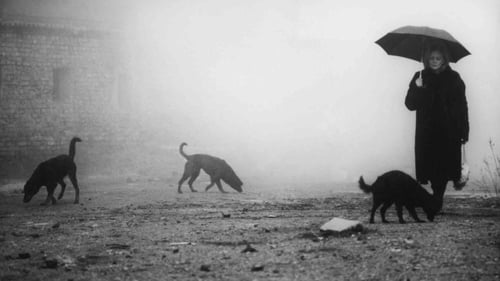
Writer
Karrer plods his way through life in quiet desperation. His environment is drab and rainy and muddy. Eaten up with solitude, his hopelessness would be incurable but for the existence of the Titanik Bar and its beautiful, haunting singer. But the lady is married and Karrer is determined to keep her husband away...

Director
Karrer plods his way through life in quiet desperation. His environment is drab and rainy and muddy. Eaten up with solitude, his hopelessness would be incurable but for the existence of the Titanik Bar and its beautiful, haunting singer. But the lady is married and Karrer is determined to keep her husband away...
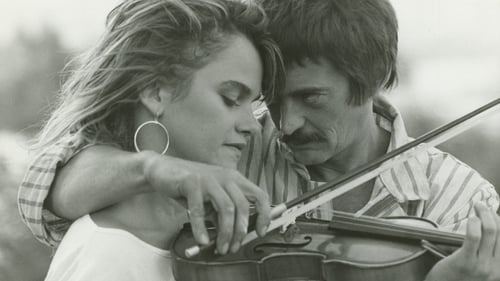
Zoltai is a Hungarian professor who returns home after a visit to the United States. Following a television interview, he commits suicide and leaves a note for his longtime friend Dr. Bardocz. The doctor and Zoltai's colleague Komindi join the police in investigating what drove the man to suicide.

Writer
In this dense setting, the inhabitants of a large, claustrophobic apartment reveal their darkest secrets, fears, obsessions and hostilities.

Director
In this dense setting, the inhabitants of a large, claustrophobic apartment reveal their darkest secrets, fears, obsessions and hostilities.

Screenplay
A Hungarian TV version of the play shot in just two takes.

Director
A Hungarian TV version of the play shot in just two takes.
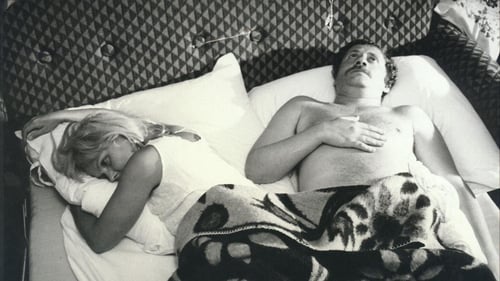
Writer
Using verite conventions, a young couple with a baby and a child are worn away by the monotony of their lives.

Director
Using verite conventions, a young couple with a baby and a child are worn away by the monotony of their lives.
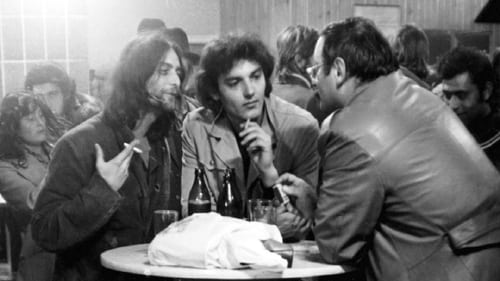
Writer
A talented but irresponsible violinist ruins his marriage with his drinking and antisocial behaviour.

Director
A talented but irresponsible violinist ruins his marriage with his drinking and antisocial behaviour.

Writer
Családi tüzfészek (aka Family Nest) is an intimate portrayal of a family slowly disintegrating under various pressures in late 1970s communist Hungary. The plot of the film is deceptively simple, with the occasional momentous event--including one that's relatively shocking, but plot in a conventional sense is not the focus here.

Director
Családi tüzfészek (aka Family Nest) is an intimate portrayal of a family slowly disintegrating under various pressures in late 1970s communist Hungary. The plot of the film is deceptively simple, with the occasional momentous event--including one that's relatively shocking, but plot in a conventional sense is not the focus here.

Director
A student film by Béla Tarr, from 1979. Presumed lost until very recently.

Writer
Documentary about a hostel for workers. An old worker suspected of stealing a motor gets fired from the factory and must leave the hostel.

Director
Documentary about a hostel for workers. An old worker suspected of stealing a motor gets fired from the factory and must leave the hostel.



















